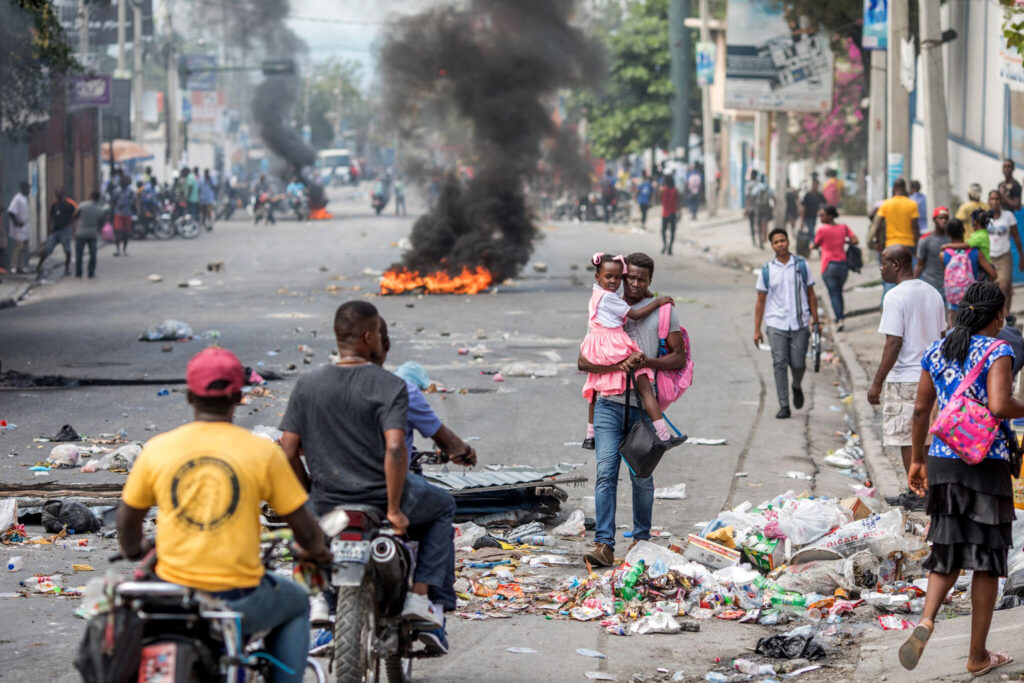On October 3, 2024, Haiti was once again thrust into a state of shock and grief when at least 70 people, including three infants, were brutally killed in a devastating gang attack in the small village of Pont Sonde, located in Central Haiti. Armed men swept through the area, unleashing terror with automatic weapons and setting fire to homes and vehicles, leaving a trail of destruction and heartache in their wake.
This deadly attack is one of the most severe incidents of gang violence in the country in recent years, and it comes amid a broader surge of unrest that has claimed more than 3,600 lives in 2024 alone. Haiti’s ongoing security crisis has left the population in constant fear as armed gangs continue to assert control over large swaths of the country.
The Attack on Pont Sonde
The attack in Pont Sonde saw heavily armed gangs target a peaceful rural community, with no regard for the innocent lives that were lost. Survivors described a night of terror as the gangs shot indiscriminately, torching homes and vehicles. Families were forced to flee into the countryside, with many unable to return to their homes, now reduced to ashes.
The massacre in Pont Sonde is just the latest example of the unchecked violence that has ravaged Haiti, where gangs have become increasingly bold, expanding their control over territory and attacking civilians with impunity. The capital, Port-au-Prince, and several rural areas have become hotspots for violence, with gangs vying for control over territory, drug routes, and other criminal enterprises.
Prime Minister Garry Conille’s Response
In response to the massacre, Prime Minister Garry Conille has intensified efforts to address the gang violence that has destabilized Haiti for years. Acknowledging the gravity of the situation, Conille embarked on a trip to the United Arab Emirates (UAE) and Kenya this past weekend in a bid to secure security assistance for his beleaguered nation.
His diplomatic mission is a crucial step in seeking external support to help restore order in Haiti. In both the UAE and Kenya, Conille has held discussions with high-level officials, seeking international aid in bolstering Haiti’s security forces and addressing the deep-rooted issues contributing to the rise of gang violence.
Seeking International Support
Prime Minister Conille’s trip reflects Haiti’s desperate need for global intervention. Haiti’s security forces are vastly outmatched by the heavily armed gangs, and without significant external support, the government has struggled to contain the violence. The international community has been slow to respond, but Conille hopes that partnerships with countries like the UAE and Kenya will result in meaningful assistance, including military training, equipment, and logistical support.
Kenya has already expressed its willingness to support peacekeeping missions in Haiti, and discussions with the UAE have centered around leveraging their resources to help fortify Haiti’s police and military. Both nations have voiced concern over the deteriorating security situation in Haiti, and Conille’s visit underscores the urgent need for a coordinated, international effort to restore peace and stability.
The Human Cost of Gang Violence
The Pont Sonde massacre is just one incident in a long string of violent acts that have left thousands dead and even more displaced. The impact on the Haitian people has been profound, as families continue to mourn the loss of loved ones and live in fear of the next attack. Communities are devastated, with homes and livelihoods destroyed, and children growing up in an environment of constant danger and trauma.
The United Nations has reported that more than 3,600 people have lost their lives to gang violence in Haiti this year, with many more kidnapped, assaulted, or forced to flee their homes. The humanitarian crisis continues to deepen as access to basic needs like food, water, and medical care becomes increasingly difficult in gang-controlled areas.
The Path Forward
As Haiti grapples with one of the deadliest periods in its history, Prime Minister Garry Conille’s trip to the UAE and Kenya represents a pivotal moment in the country’s fight for survival. The search for international assistance is critical, but the path forward will not be easy. The Haitian government must not only work to dismantle the power of the gangs but also address the deep-seated economic and social challenges that have allowed these criminal networks to thrive.
While Conille’s efforts are a step in the right direction, the road to restoring peace and security in Haiti will require sustained commitment both from his administration and from the global community. The recent massacre in Pont Sonde is a tragic reminder of the urgency of this mission, and the lives lost should serve as a rallying cry for action.
As Haiti mourns the 70 lives brutally taken in this latest attack, there is a growing consensus that only a united, international effort can bring an end to the bloodshed. The Haitian people are resilient, but they need more than hope—they need action.

